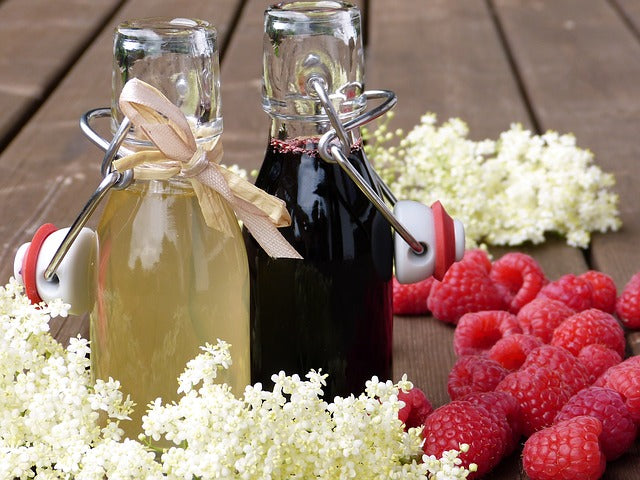
Infusions & Decoctions, Syrups, Medicinal Salves/Oils, Tinctures, Glycerite Tinctures
Each of these applications has its benefits so, let’s have a look into what all of these preparations mean?
Infusions & Decoctions:
An herbal infusion is usually the upper parts of the plant, the tender flowers, leaves and buds. Steep the leaves and flowers (4-6Tbs) in a quart jar for at least 30-45 minutes, with a cover on the top so the delicate volatile oils don’t evaporate. The longer your tea steeps the stronger your infusion will be.
A decoction is an herbal infusion using the twigs, roots and the bark. You gently simmer your decoction 4-6 Tbs. in a quart if water so the plants medicinal constituents are released. Simmer for at least 20 minutes.
Syrups:
Why Syrups? For one reason they are wonderful for children and the elderly. Children are more incline to take a medicinal syrup because they are very sweet; they also soothe the throat and are very comforting.
To make syrup you start with a very concentrated decoction. One of my favorites to always have on hand is Elderberry. There are so many different types of syrups: Just to list a few.
Elderberry syrup, ginger syrup, violet syrup, licorice syrup, honey-onion syrup, marshmallow syrup, one of my favorite combination winter syrups is (elecampane, Mullen, marshmallow, hops and licorice) not only is this soothing but it calms the winter blues.
Boil the berries and strain (add just enough water to cover the berries) till your liquid has simmered down to half. Drain through a fine strainer or cheesecloth. Measure your liquid and then add 1:1 honey or sweetener you choose. Heat to blend. Keep syrup in the refrigerator, where it will last for several months.
Medicinal Salves/Oils:
One of my personal favorites is to make infused oils and then salves. It’s a very rewarding process. During the summer months I am picking all different types of herbs and infusing them in either E.V.O.O. (extra virgin olive oil) or jojoba oil. You can infuse in many different types of oils but the two I mentioned have the longest shelf life.
A Salve is when you use the your medicinal infused oils and add bees wax to the infusion. The bee’s wax provides you with an ointment that sits on top of the skin and allows the medicinal herbs to be absorbed slower. It is used to soothe and heal many skin conditions, applied to aching and inflamed muscles, and also a chest rub for a cold in the winter. It depends on what herbs you use in your infusions.
How to for an oil infusion: Collect the herbs you’re going to be infusing and put them in a jar. Cover the herbs with your oil at least an inch over your herbs. In a double boiler heat oils to a low simmer (DO NOT BOIL). Do this for at least an hour, the longer the infusion the better, cool and strain. Now you have your infusion to make your salve.
A 1:3 (beeswax: herbal infusion) formula is used to make a salve. Heat the bee’s wax and your infusion together till the bee’s wax has melted. You may want to check for consistency. By this I mean you may want your salve a little harder (add more wax or softer add more of your medicinal oil) how you do this is put a teaspoon on salve on a plate, let it cool, see if you like. Pour into a jar or metal tin, store in a cool dark place.
Tinctures:
Tinctures are very concentrated herbal plant extracts usually dissolved in ethanol (grain alcohol). There are a number of reasons for using a tincture. Grain alcohol, being so high in proof when taken directly under the tongue it enters the bloodstream much more quickly, so this means the medicinal action of the herbs you are using will act faster on the situation your trying to treat.
A tincture lasts for approximately 4-6 years; because of the high % of alcohol you are using is a preservative.
Grain alcohol is 196 proof, which gives you 98 % of alcohol. Example (80 proof is 40% alcohol) the rest of the liquid is water. This is also the reason I use grain alcohol, it’s really easy to calculate your formula.
Also a wonderful book is: Making Plant Medicine by Richo Cech. Richo gives you the ratios for many medicinal plants.
On another note I like to measure all of my herbs on a scale that are going into each of my medicinal formulas. Reason being if asked to make it again it will be the same and no guesswork. Many people use what’s called the Folk method or simpler measure method(a little of this and a dab of that). 1Tbs. of fluffy Mullen doesn’t weigh the same as ground Comfrey Root.
The ratios used are:
For fresh herbs: 1:2 and Dried herbs 1:5 (1) being the herb and the second number being the alcohol.
Glycerite Tincture:
A Glycerite Tincture is made from a vegetable base glycerin solvent made from soybean, coconut or palm oils and usually very sweet.
Reasons for using a glycerin tincture is some people are intolerant of alcohol, they can’t have it or just don’t like it.
Glycerin tinctures are wonderful for children, and especially for introducing medicinal medicines to them, the elderly and even animals.
When making a glycerite tincture fill your sterile jar with the herbs your going to use and then pour the vegetable glycerin 1 inch over your herbs. In a double boiler heat to a low simmer
(DO NOT BOIL). Do this for at least an hour, the longer the infusion the better. Shake everyday for the next month, strain through cheesecloth. Your glycerite tincture is ready to use.
Glycerites has a shelf life of 14-24 months.
This is the difference between making different medicinal preparations.
Throughout the next month I will be posting “How to DIY” with different herbs.
Infusions & Decoctions:
An herbal infusion is usually the upper parts of the plant, the tender flowers, leaves and buds. Steep the leaves and flowers (4-6Tbs) in a quart jar for at least 30-45 minutes, with a cover on the top so the delicate volatile oils don’t evaporate. The longer your tea steeps the stronger your infusion will be.
A decoction is an herbal infusion using the twigs, roots and the bark. You gently simmer your decoction 4-6 Tbs. in a quart if water so the plants medicinal constituents are released. Simmer for at least 20 minutes.
Syrups:
Why Syrups? For one reason they are wonderful for children and the elderly. Children are more incline to take a medicinal syrup because they are very sweet; they also soothe the throat and are very comforting.
To make syrup you start with a very concentrated decoction. One of my favorites to always have on hand is Elderberry. There are so many different types of syrups: Just to list a few.
Elderberry syrup, ginger syrup, violet syrup, licorice syrup, honey-onion syrup, marshmallow syrup, one of my favorite combination winter syrups is (elecampane, Mullen, marshmallow, hops and licorice) not only is this soothing but it calms the winter blues.
Boil the berries and strain (add just enough water to cover the berries) till your liquid has simmered down to half. Drain through a fine strainer or cheesecloth. Measure your liquid and then add 1:1 honey or sweetener you choose. Heat to blend. Keep syrup in the refrigerator, where it will last for several months.
Medicinal Salves/Oils:
One of my personal favorites is to make infused oils and then salves. It’s a very rewarding process. During the summer months I am picking all different types of herbs and infusing them in either E.V.O.O. (extra virgin olive oil) or jojoba oil. You can infuse in many different types of oils but the two I mentioned have the longest shelf life.
A Salve is when you use the your medicinal infused oils and add bees wax to the infusion. The bee’s wax provides you with an ointment that sits on top of the skin and allows the medicinal herbs to be absorbed slower. It is used to soothe and heal many skin conditions, applied to aching and inflamed muscles, and also a chest rub for a cold in the winter. It depends on what herbs you use in your infusions.
How to for an oil infusion: Collect the herbs you’re going to be infusing and put them in a jar. Cover the herbs with your oil at least an inch over your herbs. In a double boiler heat oils to a low simmer (DO NOT BOIL). Do this for at least an hour, the longer the infusion the better, cool and strain. Now you have your infusion to make your salve.
A 1:3 (beeswax: herbal infusion) formula is used to make a salve. Heat the bee’s wax and your infusion together till the bee’s wax has melted. You may want to check for consistency. By this I mean you may want your salve a little harder (add more wax or softer add more of your medicinal oil) how you do this is put a teaspoon on salve on a plate, let it cool, see if you like. Pour into a jar or metal tin, store in a cool dark place.
Tinctures:
Tinctures are very concentrated herbal plant extracts usually dissolved in ethanol (grain alcohol). There are a number of reasons for using a tincture. Grain alcohol, being so high in proof when taken directly under the tongue it enters the bloodstream much more quickly, so this means the medicinal action of the herbs you are using will act faster on the situation your trying to treat.
A tincture lasts for approximately 4-6 years; because of the high % of alcohol you are using is a preservative.
Grain alcohol is 196 proof, which gives you 98 % of alcohol. Example (80 proof is 40% alcohol) the rest of the liquid is water. This is also the reason I use grain alcohol, it’s really easy to calculate your formula.
Also a wonderful book is: Making Plant Medicine by Richo Cech. Richo gives you the ratios for many medicinal plants.
On another note I like to measure all of my herbs on a scale that are going into each of my medicinal formulas. Reason being if asked to make it again it will be the same and no guesswork. Many people use what’s called the Folk method or simpler measure method(a little of this and a dab of that). 1Tbs. of fluffy Mullen doesn’t weigh the same as ground Comfrey Root.
The ratios used are:
For fresh herbs: 1:2 and Dried herbs 1:5 (1) being the herb and the second number being the alcohol.
Glycerite Tincture:
A Glycerite Tincture is made from a vegetable base glycerin solvent made from soybean, coconut or palm oils and usually very sweet.
Reasons for using a glycerin tincture is some people are intolerant of alcohol, they can’t have it or just don’t like it.
Glycerin tinctures are wonderful for children, and especially for introducing medicinal medicines to them, the elderly and even animals.
When making a glycerite tincture fill your sterile jar with the herbs your going to use and then pour the vegetable glycerin 1 inch over your herbs. In a double boiler heat to a low simmer
(DO NOT BOIL). Do this for at least an hour, the longer the infusion the better. Shake everyday for the next month, strain through cheesecloth. Your glycerite tincture is ready to use.
Glycerites has a shelf life of 14-24 months.
This is the difference between making different medicinal preparations.
Throughout the next month I will be posting “How to DIY” with different herbs.

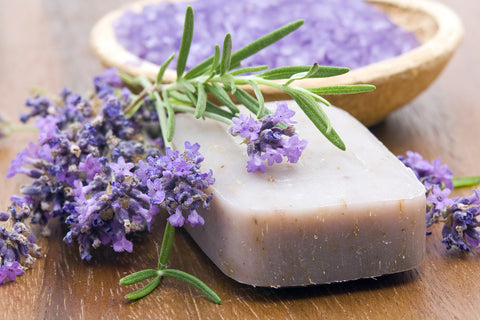
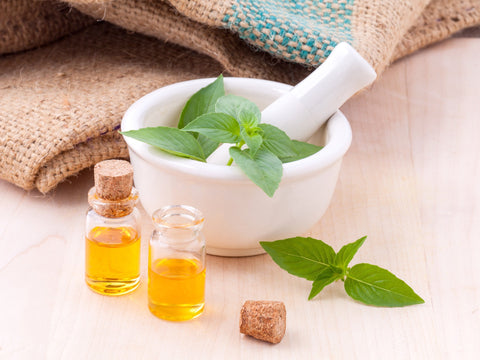
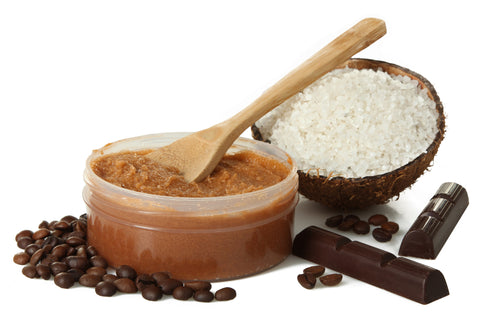
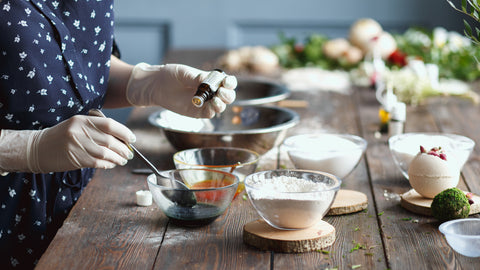
ezevasimui
http://mewkid.net/when-is-xuxlya2/ – Buy Amoxil Amoxicillin Online ckk.goeo.aromatherachi.com.rzm.kh http://mewkid.net/when-is-xuxlya2/
izifcepodegw
http://mewkid.net/when-is-xuxlya2/ – Buy Amoxicillin Buy Amoxicillin Online rgm.uwlc.aromatherachi.com.kcn.la http://mewkid.net/when-is-xuxlya2/
xefubos
http://mewkid.net/when-is-xuxlya2/ – Amoxicillin On Line Amoxicillin Without Prescription wkq.zegn.aromatherachi.com.zyf.al http://mewkid.net/when-is-xuxlya2/